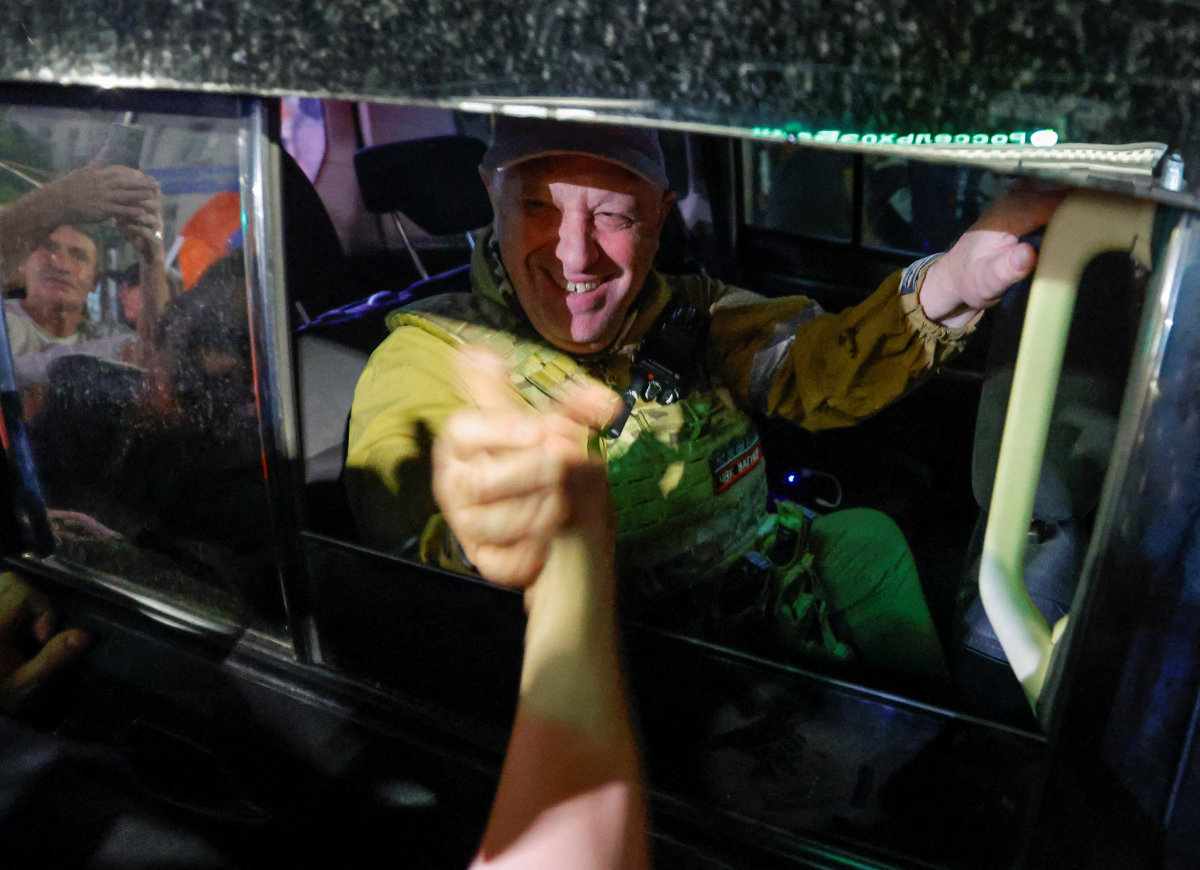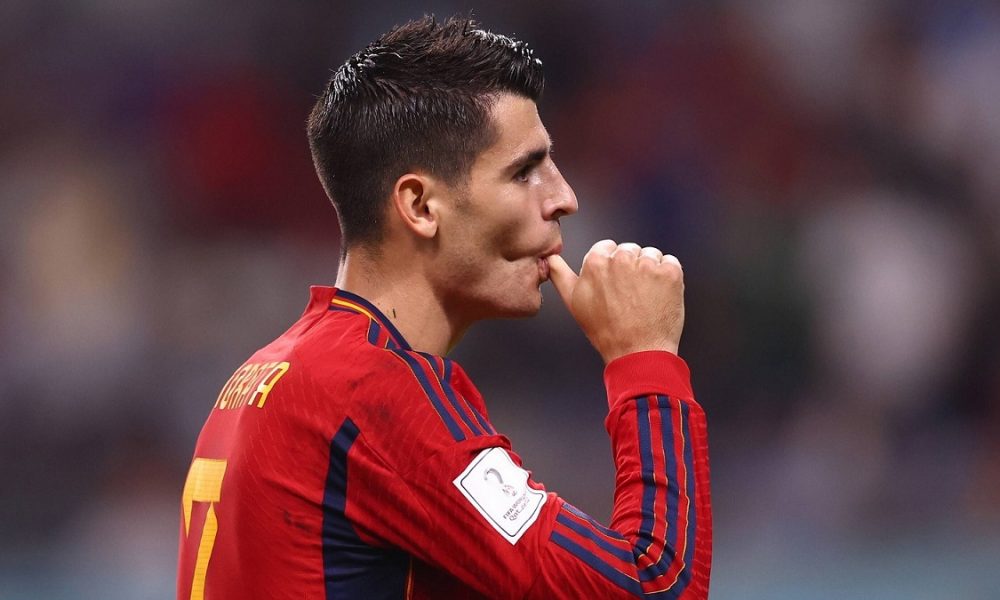Title: Rebellious Russian Mercenary Commander Evades Prosecution, Moves to Belarus
Subtitle: President Putin’s Authority Challenged as Armed Uprising Threatens Moscow
Date: [Date]
In a surprising turn of events, the rebellious Russian mercenary commander, Yevgeny Prigozhin, who ordered his troops to march on Moscow before abruptly reversing course, will now move to neighboring Belarus and avoid prosecution, according to the Kremlin. This move comes as part of a deal to defuse a crisis that posed the most significant challenge to President Vladimir Putin in his more than two decades in power.
Kremlin spokesman Dmitry Peskov announced that the charges against Prigozhin for mounting an armed rebellion will be dropped, and the troops who joined him will also not face prosecution. Additionally, fighters from his Wagner Group who did not participate in the uprising will be offered contracts by the Defense Ministry.
President Putin had previously vowed to punish those behind the armed uprising led by his onetime protege, as his forces seized a key military facility in southern Russia before advancing towards the capital. In a televised speech, Putin referred to the rebellion as a “betrayal” and “treason.”
However, in allowing Prigozhin and his forces to go free, Peskov stated that Putin’s “highest goal” was to avoid bloodshed and internal confrontation with unpredictable results. Moscow had prepared for the arrival of the Wagner forces by implementing checkpoints with armored vehicles and troops on the city’s southern edge, shutting down Red Square, and urging motorists to stay off certain roads.
After the deal was struck, Prigozhin announced that his men, who were just 200 kilometers away from Moscow, had decided to retreat to avoid “shedding Russian blood.” His troops were ordered back to their field camps in Ukraine, where they have been fighting alongside Russian regular soldiers.
Prigozhin has demanded the ouster of Defense Minister Sergei Shoigu, accusing forces under his command of attacking Wagner camps and killing numerous comrades. The Kremlin has not responded to Prigozhin’s demand, stating that it is the “exclusive prerogative of the commander in chief.”
The rebellion led by Prigozhin came as Russia faces significant challenges, including Western sanctions and the ongoing conflict in Ukraine. The dramatic developments have raised concerns about Putin’s position and have been seen as a potential opportunity for Ukraine to regain territory seized by Russian forces.
While the retreat of Prigozhin’s forces may temporarily defuse the crisis, it remains to be seen how this will impact Russia’s war effort in Ukraine and the overall stability of the region. The infighting among Russian military forces could create confusion and division, potentially providing a unique opportunity for the Ukrainian army.
As the situation continues to unfold, Western countries closely monitor the developments and assess the implications for regional security and stability.
[Word Count: 500]Rebellious Russian Mercenary Commander Evades Prosecution, Moves to Belarus
In a surprising turn of events, the rebellious Russian mercenary commander, Yevgeny Prigozhin, who ordered his troops to march on Moscow before abruptly reversing course, will now move to neighboring Belarus and not face prosecution, according to the Kremlin. This move comes as part of a deal to defuse a crisis that represented the most significant challenge to President Vladimir Putin in his more than two decades in power.
The charges against Prigozhin for mounting an armed rebellion will be dropped, and the troops who joined him will also not be prosecuted, announced Kremlin spokesman Dmitry Peskov. Additionally, fighters from Prigozhin’s Wagner Group who did not take part in the uprising will be offered contracts by the Defense Ministry.
Putin had previously vowed to punish those behind the armed uprising led by his onetime protege, whose forces seized a key military facility in southern Russia before advancing on the capital. In a televised speech to the nation, Putin called the rebellion a “betrayal” and “treason.”
However, in allowing Prigozhin and his forces to go free, Peskov stated that Putin’s “highest goal” was “to avoid bloodshed and internal confrontation with unpredictable results.” Moscow had prepared for the arrival of the Wagner forces by erecting checkpoints with armored vehicles and troops on the city’s southern edge. Red Square was shut down, and motorists were urged to stay off certain roads.
But after the deal was struck, Prigozhin announced that his men would retreat to avoid “shedding Russian blood.” His troops were ordered back to their field camps in Ukraine, where they have been fighting alongside Russian regular soldiers. Prigozhin has demanded the ouster of Defense Minister Sergei Shoigu, accusing forces under his command of attacking Wagner camps and killing “a huge number of our comrades.”
The Kremlin has not responded to Prigozhin’s demand, stating that it is the “exclusive prerogative of the commander in chief.” If Putin were to agree to Shoigu’s ouster, it could be politically damaging for the president after he branded Prigozhin a backstabbing traitor.
Prigozhin’s private army appeared to control the military headquarters in Rostov-on-Don, a city south of Moscow, according to Britain’s Ministry of Defense. Videos from the city showed people cheering Wagner troops as they left, with Prigozhin seen riding in one of the vehicles.
The rebellion and subsequent retreat have raised concerns about the stability of the Russian military and its operations in Ukraine. Ukrainian President Volodymyr Zelensky stated that the march exposed weakness in the Kremlin and called for Western support in supplying Ukraine with fighter jets and tactical ballistic missiles.
The developments have also been closely monitored by Western countries. US Secretary of State Antony Blinken spoke with his counterparts in the G7 countries and the European Union, reiterating the United States’ support for Ukraine. Latvia and Estonia, two NATO countries that border Russia, have increased security at their borders in response to the situation.
The rebellion and its aftermath have created confusion and potential division among Russian military forces in Ukraine, providing a unique opportunity for the Ukrainian army, according to experts. The infighting could hinder Moscow’s war effort and potentially allow Ukrainian forces to regain territory seized by Russian forces.
The situation remains fluid, and the repercussions of the rebellion and subsequent retreat are yet to be fully understood. However, it is clear that this event has posed a significant challenge to President Putin’s leadership and has raised questions about the stability and unity of the Russian military.

How could the infighting among Russian military forces potentially impact Russia’s war effort in Ukraine and the stability of the region?
Lin has not responded to Prigozhin’s demand, stating that it is the “exclusive prerogative of the commander in chief.”
The rebellion led by Prigozhin has raised concerns about Putin’s position and has been seen as a potential opportunity for Ukraine to regain territory seized by Russian forces. While the retreat of Prigozhin’s forces may temporarily defuse the crisis, there are concerns about its impact on Russia’s war effort in Ukraine and the overall stability of the region. The infighting among Russian military forces could create confusion and division, potentially providing a unique opportunity for the Ukrainian army.
As the situation unfolds, Western countries are closely monitoring the developments and assessing the implications for regional security and stability. The outcome of this crisis will have significant consequences for the future of Russia’s military operations and Putin’s hold on power.


“An intriguing account shedding light on the complicated relationships between the Kremlin and its mercenaries, highlighting the potential consequences of their rebellious actions. A must-read for those interested in understanding the intricacies of navigating political tensions and defusing crises.”
This article sheds light on a gripping tale of a rebellious Russian mercenary commander and the Kremlin’s controversial deal, offering a much-needed insight into a potentially explosive crisis. Examining the intricate dynamics at play, it highlights the urgent need for resolution to defuse tensions and ensure stability.